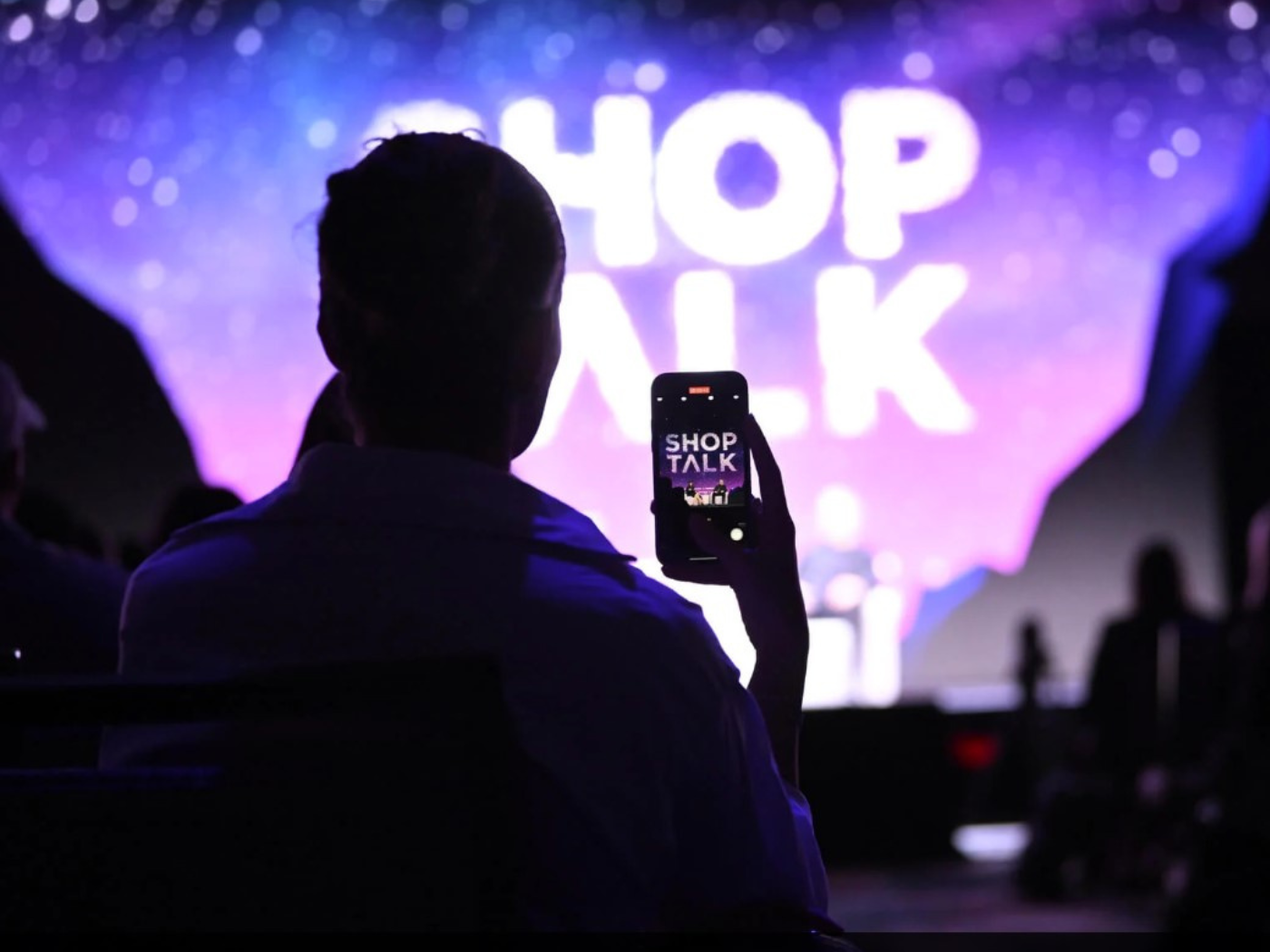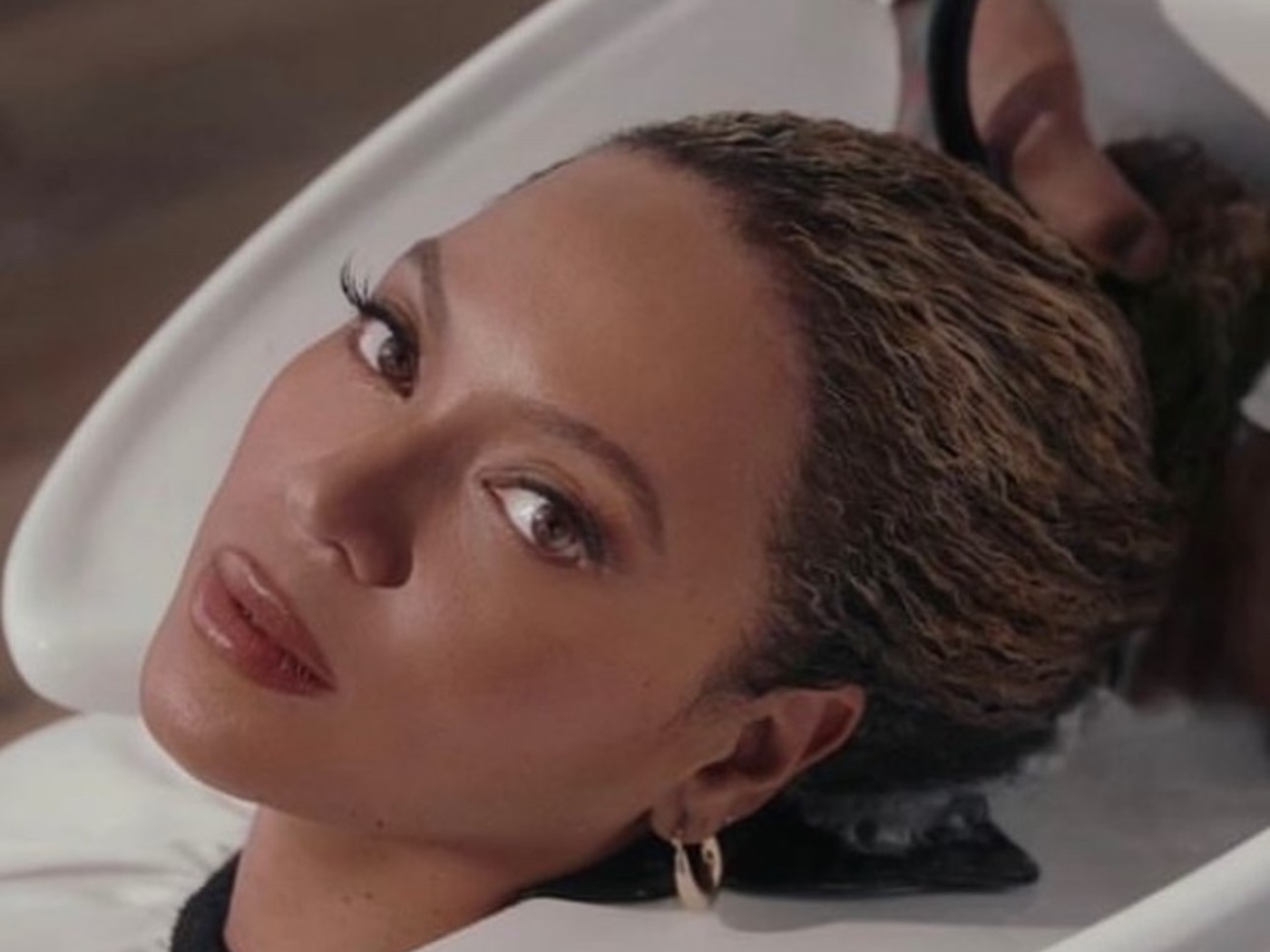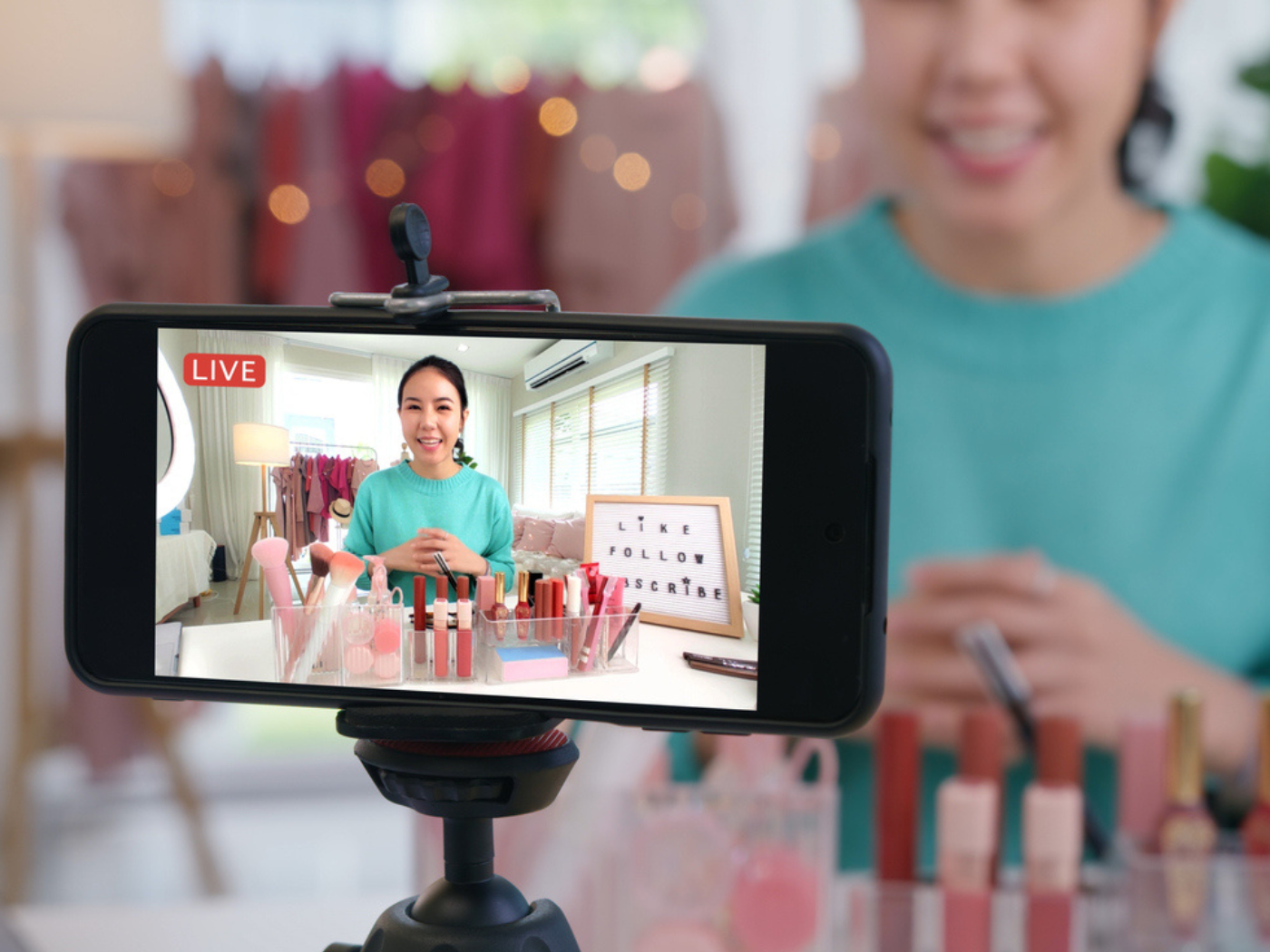Today’s consumer doesn’t “go shopping,” today’s consumer is “always shopping.”
That’s according to Karin Tracy, Meta’s Head of Retail, Fashion, and Luxury who attended this year’s Shoptalk in Las Vegas earlier this month, along with approximately 10,000 other changemakers in fashion, beauty, CPG, and retail.
Held from March 17 to March 20 at The Mandalay Bay Convention Center, Tracy’s statement is both common sense and an aha moment; it also signals a shift in shopper behavior where brands and retailers must make buying product more accessible with less friction. The sentiment was a key theme for marketers attending the annual trade show in search of gaining a competitive edge to win in today’s crowded retail ecosystem.
Social Commerce Fuels Always-On Shopping Behavior
The omnichannel conversation isn’t a new one, but the proliferation of sales channels and adoption of social commerce, notably TikTok Shop, makes it a timely one. Beauty is one of the platform’s top-selling categories, requiring the beauty industry to pay attention. TikTok calls this trend Commerce Everywhere, and Ajay Salpekar, TikTok Shop’s Head of Beauty, defines it as a multitude of “influence points across retailers, ads, broadcasts, streaming, and of course app usage like TikTok.” Salpekar is bullish on TikTok Shop’s video shopping ambitions, but he adds, “TikTok has a take on it, so do gaming apps, so do retailers…[and other] streaming platforms.”
Author of The Beauty of Success: Start, Grow and Accelerate Your Brand and Founder and CEO of BrainTrust, Kendra Bracken-Ferguson, a four-time speaker at Shoptalk who led a panel called “Succeeding with Social Commerce and Creators,” is excited about the benefit to shoppers. “The upside of social commerce will reignite seamless, impulsive shopping decisions,” she says.
Tarte’s Vice President of eCommerce, Theresa Cowing, attended Shoptalk to keep a pulse on the latest trends, technologies, and consumer behaviors. She agreed that “social commerce is rapidly changing the landscape of DTC in the U.S.” It certainly has for Tarte, an early adopter to TikTok Shop, which has sold more than half a million products on the growing commercial platform.
“There’s a sense of urgency for the things consumers want, and how fast they want it,” added Tangle Teezer Head of Marketing, North America, Amy Barber. Barber, a first-time attendee, was energized yet cautionary as she witnessed the pace of innovation and the pressure for brands to keep up. Her advice to fellow brands: implement an incredibly agile marketing strategy.
TikTok’s Salpekar concurs, “Brands should be focused on the pace of experimentation,” he says. “The more you try the faster you learn and the faster you know what works for you and the better you will be able to market and sell.”
A.I. Lives Up to the Hype
All of the fuss around artificial intelligence led to skepticism among some conference-goers but they were soon convinced of the emerging technology’s value proposition. Matthew Kellman, VP Omnichannel & E-commerce at Maesa, the celebrity brand incubator with companies such as Kristin Ess and Flower by Drew Barrymore, initially dismissed A.I. as a buzzword, but quickly pivoted after learning how many companies implement various forms of AI into their workflows.
And while the expectation may be that most beauty brands would singularly value generative A.I. for its function to help keep up with the pace and scale of content required for social media marketing, the actionable insights were far more robust. Kellman says, “I’ve learned practical ways to approach the concept with the relevant context to start employing it to save time across a variety of business needs.” Specifically, he explains, “There were many capability partners for direct-to-consumer beauty businesses offering compelling solutions in technology, fraud representation, and fulfillment.”
Elizabeth Fenton, Moroccanoil’s Senior Manager of Performance Marketing, North America, agreed. “I was able to discover new partners…that are revolutionizing the beauty industry in terms of AI,” adding, “it’s very exciting for Moroccanoil.”
Andrea Moore, Chief Digital Officer at Nest Fragrance, and Shoptalk Board Member and speaker, affirmed that she learned about how a large specialty retailer is using AI-driven technology to more accurately develop products and forecast inventory based on consumer queries. She called it “one of the more unique use cases” she had heard.
Gen Z Goes IRL…But Make it Entertainment
Amid all of the innovation in technology, a renewed enthusiasm for in-store shopping was the most unexpected trend at Shoptalk this year. The return to brick and mortar was endorsed palpably, most often in the context of Gen Z looking to balance their smartphone usage with shopping experiences with friends.
“I love to shop in-store, but it’s social experience and…nine times out of 10 when I’m shopping in a store I have a friend with me,” shared Clay Lute, who attended a Meta-sponsored breakfast hosted by BCG PR. Lute is a 23-year-old Gen-Z advisor to brands based in New York City; he urges retailers to “give me something to do.” More pointedly, he suggests attracting Gen-Z shoppers by offering in-store experiences, such as serving beverages or playing live music.
Nest’s Moore was excited to hear Macy’s CEO Tony Spring share his vision for Blue Mercury stores. During his keynote speech, Spring shared his approach to open 30 new stores and remodel 30 additional ones. Moore likes the sound of this. “Blue Mercury’s luxury edit and high value customer is a way for Macy’s to drive both sales and profit,” she said, “while scaling back on less profitable areas of the overall business.”
Coach’s Kimberly Wallengren, Vice President of Marketing, spoke on a panel titled “Finding and Reaching Customers in a Fragmented Media Landscape” and explained how the brand sells its signature fragrance in 500 of its own stores as well as in Ulta Beauty and Macy’s nationwide. To that end, Coach recently tripled its in-person activation budget. Moroccanoil’s Fenton said she was surprised to hear about the big bet on in-store programs and live events to capture Gen-Z shoppers. “I texted my PR Director immediately when I heard that; this is the first time in my career that activations are more important than performance marketing. Then she joked, “Bad news for me as a performance marketer.”




